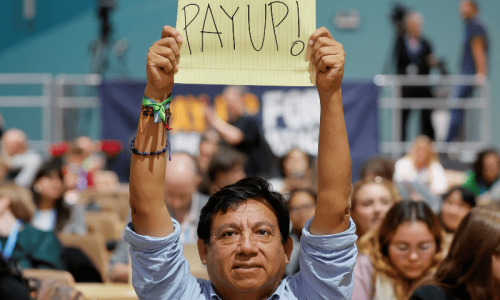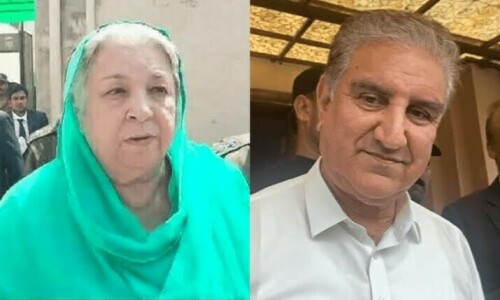JERUSALEM: Israel removed metal detectors from entrances to the Aqsa mosque compound in Jerusalem’s Old City on Tuesday in favour of CCTV cameras, hoping to calm days of bloodshed, but Palestinians said the modified security measures were still unacceptable.
Israel installed the detectors at entry points to Al Aqsa mosque compound in Jerusalem after two police guards were fatally shot on July 14, setting off the bloodiest clashes between Israelis and Palestinians in years.
The spike in tensions and the deaths of three Israelis and four Palestinians in violence on Friday and Saturday raised international alarm and prompted a session of the United Nations Security Council to consider ways of defusing the crisis.
“All parties should work to reduce the tensions and we offer whatever assistance we can in helping to do this,” Nikki Haley, US ambassador to the United Nations, told the Security Council in New York.
Palestinian president and the cleric who oversees holy site reject new Israeli measures
“At the holy sites, it’s vital that both access and security be ensured.”
Washington has already held talks with Israel and Jordan to help resolve the crisis.
Palestinian President Mahmoud Abbas and the senior Muslim cleric who oversees Al Aqsa compound both dismissed the new Israeli measures and demanded all of them be removed.
“All new Israeli measures put in place since (July 14) must be removed so things can go back to normal in Jerusalem and we can resume our work regarding bilateral relations,” Abbas said at the beginning of a meeting with the Palestinian leadership.
The Waqf, the body that runs the Islamic sites in the Al Aqsa compound, said worshippers would continue to stay away from the elevated, marble-and-stone plaza and pray in the streets outside.
Jews revere the compound as the place where two ancient temples once stood.
A Waqf spokesman said it was waiting for a decision of a technical committee but was demanding that the situation be reverted to the way it was before the metal detectors were installed.
Israeli Prime Minister Benjamin Netanyahu’s security cabinet of senior ministers voted to remove the metal detector gates early on Tuesday after a meeting lasting several hours.
A statement issued after the security cabinet meeting said it had decided to heed a recommendation of Israeli security bodies and replace the detectors with “smart checking” devices.
Municipal workers began work in some of the narrow stone-paved streets around the Aqsa compound to install overhead metal beams that would hold closed-circuit TV cameras. Israeli media said there were plans to invest in advanced camera systems.
The cabinet statement added that it had allocated up to $28 million for the equipment and for additional policing over the next six months.
CCTV images indicated that the two Israeli police officers on guard duty were shot dead by three Israeli Arabs who had concealed weapons inside the Aqsa compound.
The dispute, like many in the Holy Land, is about much more than security devices, taking in issues of sovereignty, religious freedom, occupation and Palestinian nationalism. Muslims refer to the compound as the Noble Sanctuary while Jews call it the Temple Mount.
Turkish President Tayyip Erdogan said Israel stood to lose most in the dispute and echoed calls for the removal of new security systems.
“I have heard of Israel’s decision to remove the metal detectors, and I hope the rest will follow... We expect Israel to take steps for the peace of the region.”
Published in Dawn, July 26th, 2017















































